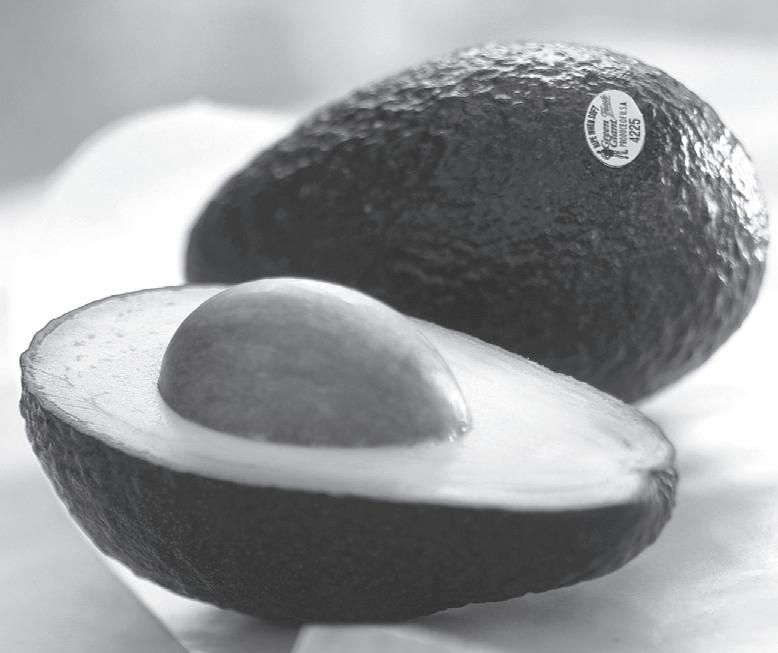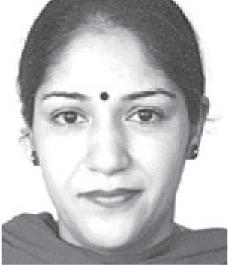
4 minute read
Healthy ageing
from 2010-03 Sydney (1)
by Indian Link
Diet factors for seniors to consider
BY GEETA KHURANA
Lots of physiological and psychological changes are associated with the process of ageing. When we are young we might eat eight puris and still have the appetite for two gulabjamuns, but as we grow old we might find it difficult to eat three puris or even think about putting a second gulabjamun in our plate. Even if we feel young at heart, our bodies let us know by way of discomfort that we are growing old.

Healthy ageing requires the overall wellbeing of the individual which comprises of physical fitness, social wellbeing, financial security and mental and emotional stability. Obesity, diabetes, cardiovascular problems, osteoporosis and cancer are common problems associated with old age.
As we age, our body metabolism slows down and so, even if we eat the same kind and amount of food as before, we end up putting on weight since we burn fewer calories. Many seniors have problems with chewing, swallowing and digestion, especially when using dentures. The sense of taste and smell also declines, which reduces the pleasure and comfort associated with food. And generally people wearing dentures are unable to chew hard foods; which further limits choices of foods.
Constipation is another major problem in old age because of less fibre intake, less fluid intake and a sedentary lifestyle. Staying indoors increases the chances of having Vitamin D deficiencies as there is very little exposure to sunlight. This further decreases bone strength and causes osteoporosis.
Previously, in the joint family system, the elders were well looked after and had wholesome food to eat. But now due to the trend of nuclear families, most of our aged population is left to fend for themselves. This further deteriorates their diet as most of them are not able to cook or do not feel like cooking elaborate meals and therefore rely mostly on frozen, pre-cooked or unhealthy processed foods and quick meals.
There are certain tips which would help to maintain a balanced nutrition for healthy ageing: l Do not skip meals. Have three regular and three small meals, as large portions of food might cause heaviness and may be difficult to digest. l Try to opt for low Glycemic index carbohydrates or wholegrain carbohydrates. For example: instead of white bread use multigrain bread. If you have a chewing problem with grains, go in for soy linseed or rye bread. Eat brown rice and whole wheat pasta instead of the white refined products. Wholegrain foods are higher in fibre and keep you full for a longer time. l Go in for fat reduced dairy foods. Choose skimmed milk, diet or 99% fat free yoghurts and light cheese. Have less of saturated fats such as butter and ghee. And have at least three serves of calcium every day to keep your bones healthy. A serve is a glass of milk or a slice of cheese. Those who are lactose intolerant can go in for soy milk, although sometimes yoghurt can be tolerated. l Have at least two serves of fruits and five serves of vegetables every day. Fruits and salads can be had as in-between snacks and fillers during the day. If you have problems chewing and eating raw salads, grate them instead. Enjoy a variety of fruits and salad vegetables such as melons, strawberries, bananas, plums, apples, cucumbers, carrots, lettuce, tomatoes and onions. Fruits can also be stewed. But avoid fruit juices or fruit canned in sugar syrup; instead pick fruit canned in natural syrup. These will help prevent constipation, provide resistance against diseases and also provide antioxidants to fight disease likes cancer in old age. l Pick foods with healthy fats and avoid unhealthy fats. Unhealthy fats are mainly found in full fat dairy products and red meat. Trans-fats are found in cookies, candies and processed goods. Have more of the unsaturated fats found in plant oils such as sunflower oil, olive oil and canola oil, etc. as well as fats found in nuts and avocadoes. Because avocadoes have a lot of good fat, they should be eaten in moderation. Also eat more fish like sardines, salmon, herring and mackerel. If you must have meat, go in for the lean cuts and trim off all the fat, as red meat is generally a good source of iron. lProteins are also very important for your body. These are needed to maintain a healthy immune system and to prevent muscles from wasting. Go in for lentils, soy, tofu, paneer, eggs, skinless chicken, fish and lean cuts of meat regularly. l Flavour your food with lemon juice, vinegar, coriander and mint to make it more colorful and appetizing. Have mint coriander chutney as an accompaniment rather than pickles, as they are high in both salt and oil.

Grocery/Convenience Store for sale
Nearly 3 yrs old Indian grocery/convenience store for sale in busy suburb. Prime location if you want to add coffee shop/ take away food counter inside the shop as it is surrounded by offices/near to School. 5 minute walk to the station.
Interested parties can contact: l As hypertension is a common problem with the elderly, go slow on fried foods and salt. Also have less of namkeen mixtures as these are all fried and have a lot of salt. Fried foods such as samosas and spring rolls can be substituted for bhel puri, sandwiches and fruit chaat l Cakes, mithais and other sweets can be kept for special occasions, birthdays and festivals. l The body’s water content decreases as you grow older and this is the reason why a lot of seniors suffer from dehydration. Drink plenty of water daily. Avoid having fruit juices, aerated drinks or more tea and coffee. Have plain nimbu pani or lassi instead of cordials or soft drinks. l Go for a walk every day. If you are not able to walk for a longer time, then try to walk for shorter but more frequent spells. Physical activity is as important as good nutrition to keep you healthy. Growing old does not mean, having a restricted diet or staying indoors. Go out and enjoy yourself, join clubs and libraries. Do the things that you’ve always wanted to do, but never had the time when you were young and had a busy schedule. All this will keep you in a positive frame of mind which is a very important part of healthy ageing. A well balanced diet, regular exercise and a positive attitude will go a long way to help you enjoy healthy old age.










